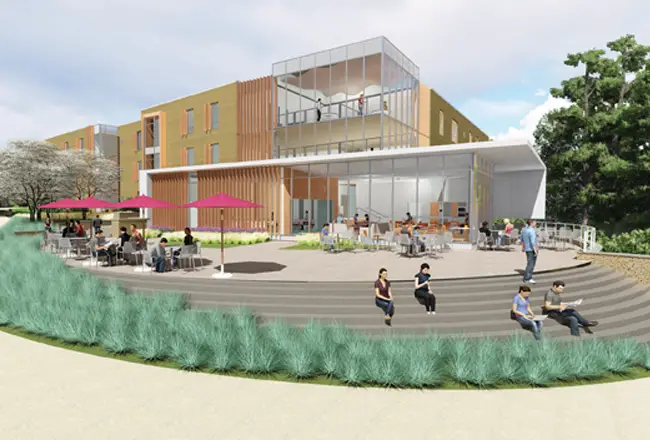SUNY Sullivan will be the latest New York higher education institute to try its hand at growing and studying hemp.
The Loch Sheldrake community college recently received a permit from the state to join the Industrial Hemp Pilot Program, a state initiative that opened up 10 new permits to higher education institutes to grow and research industrial hemp. The college”™s partner in the Catskills agricultural program will be The Center for Discovery in Monticello.
Hemp is often referred to as marijuana’s cousin. They’re varieties of the same plant, but hemp is bred to contain a much lower level of tetrahydrocannabinol or THC.
Industrial hemp can be useful for a wide variety of industries. Gov. Andrew M. Cuomo has said the plant could create a billion-dollar industry in the state. A press release from his office in January said the stalk and seeds from hemp can be used in the production of clothing, building materials, fuel, paper and consumer products.
SUNY Sullivan will study two aspects of the plant, according to John “Jay” Quaintance, the school”™s interim president.
The first part will look at how the school can use biodynamic growing methods on a particular strain of hemp. He described it as a “super-charged version” of organic growing.
Once the hemp has been harvested, the school’s chemistry department then can take over with part two of the study, examining both the amount and quality of cannabidiol that can be extracted from the plant.
“It’s a compound that seems to have some positive effect on reducing the number of seizures for people with various seizure disorders,” Quaintance said. “We’re not actually going to be doing any testing of that, but we are going to be looking at the amounts of that compound within the product grown under these conditions.”
SUNY Sullivan’s partnering on the project, The Center for Discovery, IS the largest employer in Sullivan County. The private nonprofit headquartered in Monticello provides services for people with physical and developmental disabilities “grounded in the land and our community of care and education,” as described on its website.
The Center for Discovery has more than 300 acres of farmland where it grows produce and raises animals using biodynamic techniques. The farms provide food for both the center and its residents.
John Conway, a spokesperson for The Center for Discovery, said the center will focus on how biodynamic growing techniques can affect the quality of hemp grown. The center’s goal, Conway said, “is to provide a biodynamic operation to grow as purely as possible the best hemp we can grow.”
The center is also interested in understanding how that quality can help medicinal uses of the product. “Growing hemp biodynamically, does that enhance the properties and make it more effective in seizures and other applications?” Conway said.
SUNY Sullivan’s and Binghamton University”˜s entry into the program were announced by the governor. Binghamton will also research cannabidiol and its potential in the medical and pharmaceutical industries.
Cornell University and Morrisville State College were approved last year to take part in the program. Cornell’s College of Agriculture and Life Sciences is researching seeding equipment, while Morrisville is experimenting with fertilizers and potential uses for hemp.
In January, Cuomo pushed for legislation that would expand the New York hemp pilot program to authorize an unlimited number of farms to work with the state to research industrial hemp as an agricultural commodity.
States were first authorized to launch hemp programs in 2014. The U.S. Farm Bill passed that year included a provision that allowed states to regulate and conduct research programs on industrialized hemp.
In the meantime, the state Department of Agriculture and Markets is still reviewing applications for the remaining six permits under the Industrial Hemp Pilot Program.
SUNY Sullivan and The Center for Discovery expect to launch the hemp study this spring.






















